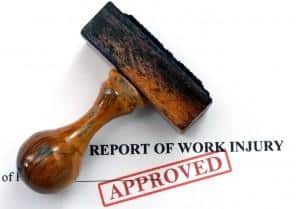
The success of court reporting depends on efficiency and accuracy. Real-time court reporting improves the production and accuracy in the courtroom. The evolution of data transmittal provides attorneys with many benefits. While the reporters still use stenotype machines, they are updated models that allow real-time transcription. Thus, information can be translated and sent immediately. The transcription of the court proceedings becomes accessible, searchable, and easier to review.
Purpose and benefits of real-time transcription for court proceedings
In the courtroom, a court reporter or stenographer uses real time captioning software to transcribe spoken words and projecting them to computers or a large screen via the internet or cable connection. In addition, the software can translate stenographic symbols into text. Real-time transcription is often used during depositions and trials, allowing attorneys and other participants inside the courtroom to view a transcript of the testimony and court proceedings immediately.
With real-time transcription, the attorney can read the testimony as it is spoken, elicit the desired testimony, and make the correct objections. The attorney can also get a transcript of the trial or the deposition right after it ends, annotate critical parts of the transcript, and share the transcript through a secure internet connection to clients, experts, and colleagues who are not present in the courtroom. Real-time transcription also frees the attorney from taking copious notes.
A modern approach to the practice of law
The law practice is more on the traditional side, and the sector is slow to switch to new technologies. Law firms were not keen on using modern systems and tools, even if some industries were already taking these technologies for granted. But they did adopt these technologies because they provided plenty of benefits for them. For example, lawyers saw the changes in court reporting with the use of real-time transcription.
Real-time transcription lets the skilled court reporters prepare a transcript within seconds after a person finishes speaking. The court reporters use the usual shorthand key combination onto steno machines connected to computer software that translates the shorthand codes to text. The transcript appears on a screen. In broadcasting, they call it captions.
Extra special skills
Even with the help of advanced technology and specialized software, the delivery of real-time transcription requires excellent talent and skill on the part of the court reporter. Unfortunately, not all court stenographers are qualified to do it. Even with their exceptional skills, court reporters may hear unfamiliar words that will make them misspell the words. While it will show on screen, the stenographer will correct the spelling on the final copy of the transcript.
A big help to attorneys
Right now, real-time transcriptions are extremely valuable to attorneys, as the program improves the quality of the videotaped or remote depositions. It also provides trial transcripts immediately, which help to facilitate the progress of cases. There is no delay in the transcript’s availability. With advanced search capabilities, quoting directly from the record, and ease of creating annotations, transcripts minimize objections or challenges.
Real-time transcription by court reporters makes attorneys’ work easier and faster. They do not have to spend time taking down notes. With the instant streaming of the transcript and knowing that a copy of the transcript will be available almost after the court proceedings end, the attorney can focus on their work.




